It might seem that the production for the aviation industry does not differ much from that for the automotive sector. After all, both industries provide the people with the possibility of transportation. It turns out, however, that they are very different from each other. “There is a huge emphasis on safety in aviation production. It is one of those industrial sectors where the highest level of responsibility is required, ”says the president of Admill, Jerzy Rzeszut, who has many years of experience in both industries.
To understand the challenges and problems that characterize today’s aerospace manufacturing processes, we took a closer look at the rapidly growing company Admill. The plant located in the Polish Aviation Valley specializes in the production of engine components installed in popular aircraft models such as: Airbus A320neo, Bombardier C-Series or Gulfstream G500. Admill is focused mainly on cooperation with aviation companies associated with the American concern Pratt & Whitney, which belongs to the so-called the big three manufacturers of aero-engines (the other two are Rolls-Royce and General Electric). The production of the plant is carried out mainly on the orders of the Polish branches of the American concern: plants in Kalisz, Rzeszów (former Communication Equipment Factory), Niepołomice, as well as the company Hamilton Sundstrand.
The company belongs to the Rzeszów Association of the Aviation Valley Entrepreneurs Group – the first and at the same time the largest Polish cluster of the aviation industry on a global scale. The company worked for such a reputation for 10 years.
At the beginning, the plant in Kolbuszowa, employing a few people and having three machine tools, was not one of the largest. Today, it is an important factory in the aviation industry, employing over 80 people.
Moreover, as a specialist in the opinion of educational institutions, Admill organizes internships for students of technical schools from the Podkarpacie region, as well as university students. Some of them later find employment with the company. Currently, the production area of the plant is 1,300 m2, but it is constantly growing with the increasing number of contracts. According to the president, the company’s turnover has been steadily increasing by approximately 50% annually for the last five years. Only last year it was over PLN 13 million. The planned turnover this year is PLN 19 million.
Behind such success, there are enormous risks and responsibilities hiding. An incorrectly made element of the plane can lead to a tragedy, and thus – to the collapse of the company. “Please imagine the costs that must be covered by the company that signed up to such a product. An airplane is not a car. It won’t stop on the road when something breaks down. The responsibility in the aviation industry is huge, and the complaint is that all planes with the faulty part are grounded and return to flying only when this element is replaced “- explains the president of Admill, Jerzy Rzeszut.
The responsibility he mentions to a large extent results from the stringent standards, regulations and procedures applicable to producers in this industry.
EXTREMELY STRINGENT REQUIREMENTS IN AVIATION INDUSTRY
Any company wishing to operate in the aviation industry must meet a number of stringent requirements and go through many more procedures before being placed on the list of approved suppliers than companies producing parts for cars. It took Admill over three years. “A company like ours (and we also have a concession for the production of military products) has been thoroughly tested, says the president. And he adds half-jokingly: “Better than any politician.” Each employee must also undergo various types of medical examinations, including psychological and even psychiatric examinations, similar to those to which people applying for a license to possess or manufacture weapons undergo.
The basic requirement for companies such as Admill is a certified quality management system based on aviation standards. In addition, each aviation company has its own individual, extended range of requirements. They are verified every year during audits of the Polish plant.
It is interesting that with such stringent requirements in the aviation industry, there is no place for innovation or product improvement. Everything is made to order, based on specific requirements and documentation. “The product must be exactly as in the documentation, within the limits of tolerance imposed on us. It couldn’t be worse or better. For example, in some elements the sealing surface may not be too smooth. Too good a product is not good, ”says the president. However, you can improve in production methods, where it is important to use new tools and ways to support the preparation of production. Admill is taking bolder steps here, working on the preparation of technological processes, programs for machine tools and modeling of these products. The plant in Kolbuszowa is also constantly working on the implementation of the production management and planning system – from Comarch. “It’s a very advanced program with great possibilities, we are constantly learning it,” says Rzeszut.
The raw materials used for production must also come from approved suppliers and be thoroughly tested in terms of stringent aviation standards. There are only a handful of suppliers in Europe that meet these requirements, so some materials are sourced from the USA. Any kind of process performed on parts, such as varnishing, other metal coatings or heat treatment, also only needs to be done in approved sources.
There happends such situations in the company that parts produced by the plant are sent to the United States for using special processes. “We reject many projects because we do not have access to certain processes, such as silver plating or Teflon plating of some parts,” explains the president. Why are there no approved companies in Poland that could provide such a service? President Jerzy Rzeszut explains that it is completely unprofitable due to the specificity of the industry. “The line for this type of operation costs about PLN 1.5 million, then the approval and certification process has to be passed, which usually takes several years and is also associated with huge costs. In the end, you may find that the orders are few, as they involve the production of, for example, one hundred items per year ”.
Due to the necessity to produce a large number of different elements, companies such as Admill do not focus on specialization and large-scale production. This, apart from risk and liability, is another significant difference between two theoretically similar industries: aviation and automotive.
The production of aircraft parts is connected with the fact that the batches are small – explains the president. – The most important thing is the precision of their manufacturing. Measurements must be very accurate, specified in thousandths of a millimeter, and for this you need specialized measuring devices. “We have two such measuring machines: manual and automatic,” says Rzeszut
RESPONSIBILITY FOR QUALITY AND DOCUMENTATION
Average, one element goes through approximately ten production steps. Their quality is checked after each stage. Due to the enormous responsibility that lies with the manufacturers of aviation parts, each work that is done must be properly documented. Each produced batch has its own card, which contains all information about the production process and measurements. The production history of each item should usually be archived for a minimum of 10 years.
In order to be able to easily identify the supplier of the manufactured parts in the case of any failure, each of them must be marked with a special manufacturer’s code. All approved vendors receive unique codes. “We sign each part with a code, which means that we made it,” explains Jerzy Rzeszut. – If anything breaks down in the engine and it turns out that the part produced in our plant is to blame, the responsibility and costs related to it are bearing by us. ” This is a huge risk, so the work of people in the quality control department is particularly important.
QUALITY CONTROLLERS RESPONSIBILITY
The moment when the inspector signs with his name that he is releasing the element in the quality control department, is the moment when he takes responsibility, including civil liability, for what may happen in the air. Responsibility is on much higher level than in the automotive industry. “Often people working as quality controllers are not fully aware of it, which is why we often train employees, explaining what their responsibility is and what consequences it entails. I often remind our employees at meetings that each time they board a plane, they have to be aware of one thing: there is a high probability that their engine part is working in the engine of the plane they are going to fly on, ”says the president.
Therefore, to become an employee in the quality control department in the aviation industry, you must undergo a specific training and apprenticeship cycle. “People who are authorized to sign a document certifying the quality of the product, receive the so-called customer certificates, that is the right to receive the products on behalf of the customer, ”explains the interlocutor. To obtain such a certificate, a minimum of three years of experience in quality control in the aviation industry, undergoing a specific type of training that ends with an examination, and extended medical examinations are required. One of the requirements in this regard is to undergo a certain type of rigorous eye examination. They make it possible to determine whether a given person can see sharply and correctly distinguish between colors (a color difference may indicate a product defect).
FREQUENCY, PRECISION AND REPEATABILITY OF THE MEASUREMENT IS IMPORTANT
Another issue that distinguishes production in the aviation industry from the automotive industry is the bigger frequency of measurements – it sometimes reaches 100% of the producing parts. The accuracy of the measuring instruments is very important here. “We can measure the details with a ruler, for example, and find that they are identical. However, if we use more accurate measuring tools, it turns out that the same parts differ significantly. With the high accuracy of the measurements, it is easy to see that it is impossible to produce two exactly the same items. The more accurate the measuring tool, the greater these differences are, ”explains Rzeszut.
Several factors are responsible for the repeatability of the production process: the quality and accuracy of the measuring tools, the human factor (all people involved in the production process), the working environment, and the material from which the element is made. “The materials will always be slightly different from each other. No two products alike, ”says the president. Interestingly, there’s a ton of research in the aerospace industry to find out if a part has hidden flaws. These are, for example, non-destructive tests (X-ray, fluorescence, magnetic tests) that can detect microcracks inside the material.
A clear sign that one of the elements of the production process or measurement is failing is the moment when the measurement results on the product control card are perfect. You should then take a good look at the entire process. “It is suspicious that the product control card shows benchmark results without any deviation. We know then that either someone is cheating or has chosen the wrong measurement tool, ”says the president, showing an exemplary control card. It contains the limits of permissible deviations of the measurement results. If any dimension exceeds it, it is necessary to interfere in the process and look for the reasons for its dysregulation. “Most often it emerges that the tool has been misconfigured,” says the president. The way is to react when the signal about process instability appears and to correct it before a defective product is created.
MISTAKES COST DEARLY
Companies producing for the aviation sector are often exposed to considerable costs resulting from a mistake. “It’s not always possible to fix a bad batch, sometimes you have to start production all over again. However, even if the series can be improved, it is associated with a considerable financial burden for the plant, because the entire multi-stage process has to be started all over again. The monthly costs of non-compliant products reach the cost of buying a good car, ”says the president. This is mainly because the materials used in aviation are very expensive, especially aluminum, titanium, nickel alloys and stainless steel. “Metal alloys based on nickel, chromium or niobium are priced in gold. These are very expensive raw materials. So a production error can cost a lot and every employee must be aware of it, ”he explains. The goal is always to be free of non-compliant products and no additional costs. “This is an ideal, it never really happens. However, you can minimize these values to an acceptable level. These are the goals we set ourselves every year, ”concludes Jerzy Rzeszut.


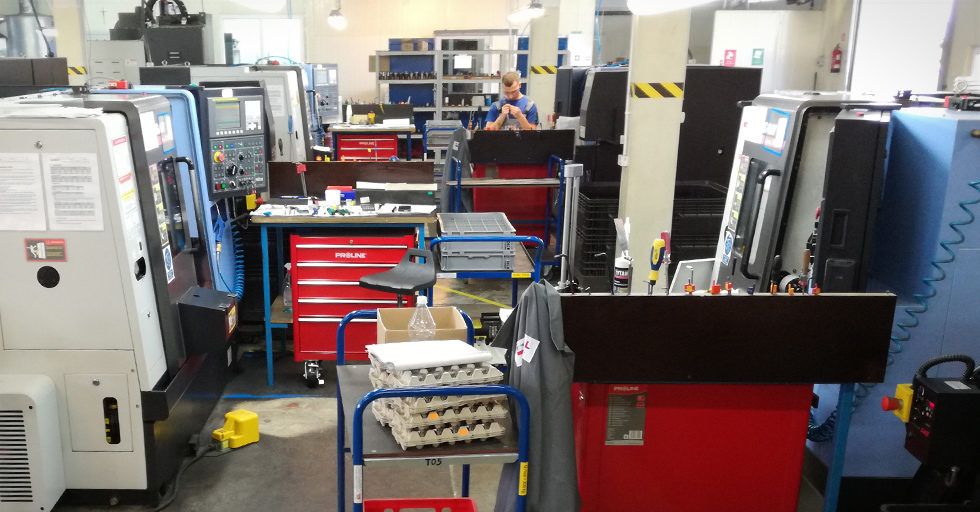
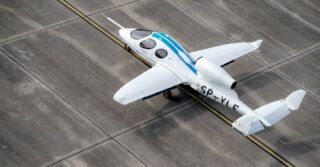
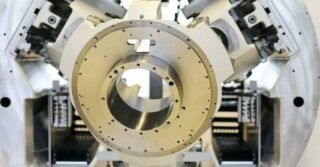
![Will digital twin revolutionize the aerospace and defense sector? [REPORT] Will digital twin revolutionize the aerospace and defense sector? [REPORT]](https://industryinsider.eu/wp-content/uploads/xdigital-twin-in-aerospace-320x167.jpg.pagespeed.ic.K-YNPhggcS.jpg)
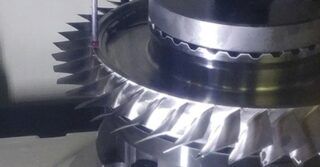
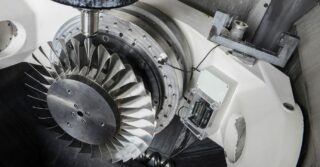
![DevSecOps in the aerospace and defense industry [REPORT] DevSecOps in the aerospace and defense industry [REPORT]](https://industryinsider.eu/wp-content/uploads/xDevSecOps-Survey-Report--320x167.jpg.pagespeed.ic.VZsN61fGqX.jpg)